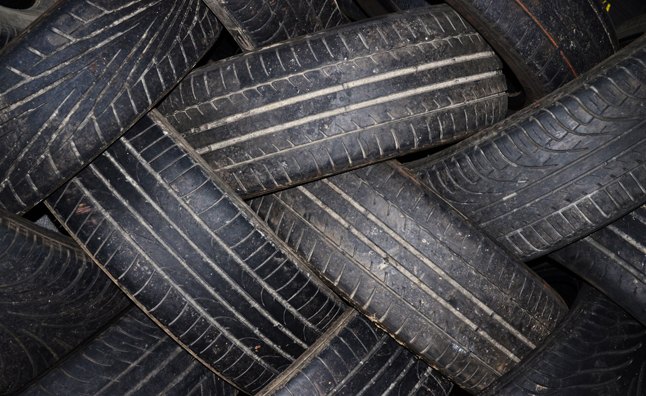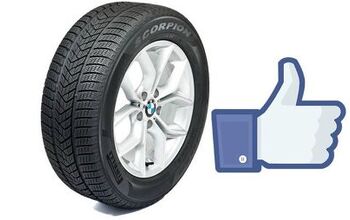Can You Use Winter Tires All Year?

Updated March 2019
You might want to drive all year long on winter tires to save money, time or both, but that you shouldn’t do it.
These two features allow winter tires to be effective on icy roads. The softer tire compound allows the tires to grip when temperatures drop below 44 degrees Fahrenheit or seven degrees Celsius.
See Also: The Best Winter Tires and Why You Need Them
“The compounds [in winter tires] are oriented to work at lower temperatures,” said Yokohama representative Phillip Diogenes. This is in contrast to all-season or summer tires, which become hard and lose almost all of their grip.
But in warmer weather, winter tires become too soft, which significantly impacts handling and performance. Instead of having a crisp feeling turn-in, like you would with a summer or all-season tire in ideal temperatures, a winter tire would feel slow to respond when used in warm weather.
SEE ALSO: Should You Buy Summer Tires?
Diogenes also pointed out that all the treads and grooves that are found on a winter tire would cause the tire to feel “squirmy” and unstable in warm and dry weather.
Finally, choosing to use winter tires all year long will cause the tires to wear out irregularly. Not only will the tires degrade unevenly, but they will also cause additional noise as they wear.
See Also: Buyers Guide: The Best All-Season Tires
Is there any potential advantage to driving on winter tires all year long? “They do deal with larger amounts of water effectively too which of course is encountered all year long like rain,” said Diogenes, but that could be said about a few all-season and summer tires too.
Is there a Perfect Tire?
See Also: The Best Tire Pressure Gauges
Another option is the less compromised all-weather tire. Unlike an all-season tire, an all-weather tire features the same snowflake and mountain symbol as a winter tire, meaning it’s almost as capable in the snow and slush as a dedicated winter set of rubber. But unlike a winter tire, all-weather tires don’t get too soft in warm weather, making them appropriate in the spring and summer. If you don’t have the budget or space for dedicated winter and summer tires, these may be the best option. The most popular all-weather tires are the Nokian WRG2 and WRG3, while other options include the Hankook 4S, the Vredestein Quatrac and the Goodyear Fortera TripleTred.

Sami has an unquenchable thirst for car knowledge and has been at AutoGuide for the past six years. He has a degree in journalism and media studies from the University of Guelph-Humber in Toronto and has won multiple journalism awards from the Automotive Journalist Association of Canada. Sami is also on the jury for the World Car Awards.
More by Sami Haj-Assaad























![TGIF[R-S]: Can You Drive a Rear-Wheel Drive Sports Car All Year Long?](https://cdn-fastly.autoguide.com/media/2023/06/08/12476584/tgif-r-s-can-you-drive-a-rear-wheel-drive-sports-car-all-year-long.jpg?size=350x220)











Comments
Join the conversation
I agree with the author. I bought some Goodyear Winter Command tires for my Jeep Cherokee in February. They were instantly a game-changer. Felt like claws on the frozen pavement. Now, as warmer temps have finally arrived in SW Colorado, the handling us very sloppy, feels like the axle is loose or the tires are way under- inflated. It's definitely not a good feeling. Plus, I know the softer material will wear out far faster when the roads really heat up. Don't waste snow tires in summer.
So it sounds to me like it depends on how much (and where) you drive. If you only put on a few thousand miles a year, and don't live in the desert, it should be just fine to use snow tires year-round.